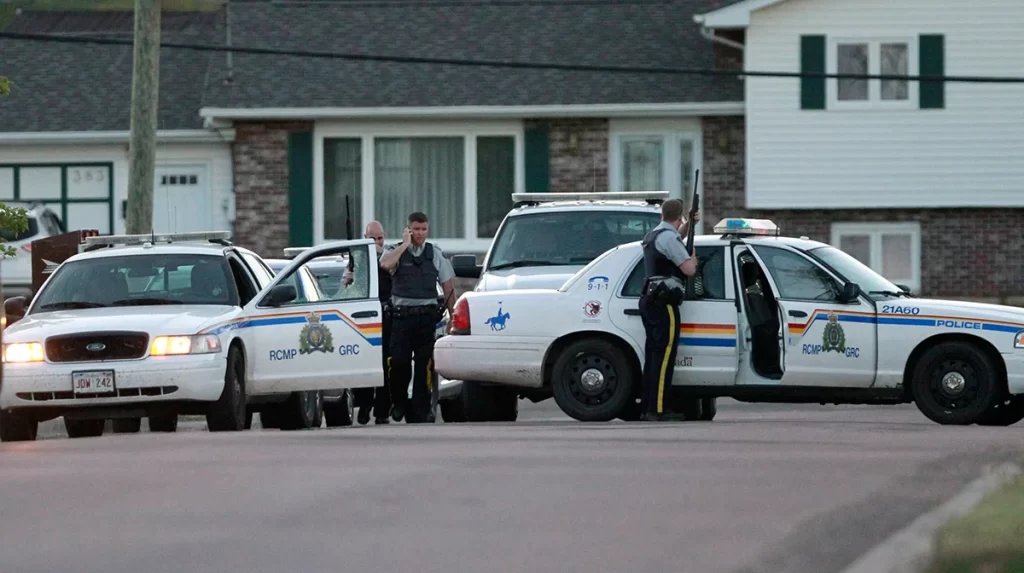Living the Past in the Present

Although what affects one First Responder or Veteran and how significantly can be very different, no one is immune to the stresses and strains of service. When we consider trauma, we must remember that how we understand an event impacts the way we feel about it. We appraise events and create associations between those and other experiences. When inappropriate appraisals are made about people, places or other things that resemble disturbing experiences, our present might begin to feel like a constant replay of a traumatic past. Clear as mud? The way difficulties are assessed will have a significant influence on how we understand and cope with them.
Before reading any further, this is NOT a checklist for symptoms of post-traumatic stress disorder (PTSD) or a tool for self-diagnosing PTSD, other OSI, or mental health concerns.
Signs & Symptoms of PTSD
Judgements of the present are often made based on knowledge from the past. As a Firefighter, Paramedic, or Police Officer, you have very likely been through many disturbing calls and might have had some difficulty adjusting afterwards. Perhaps with some time and maybe support from peers, you have managed to handle these experiences. As Veterans, these memories can also remain as unpleasant souvenirs from service, but healthy coping mechanism have allowed us to manage them. However, it is important for us to recognize that signs and symptoms of PTSD and their intensity can vary over time and be experienced differently from one First Responder or Veteran to another.
— Intrusive, distressing memories do not flow in an always accurate or autobiographical way that acknowledges what was then and what is now.
How does PTSD affect First Responders and Veterans? Intrusive, distressing memories do not flow in an always accurate or autobiographical way that acknowledges what was then and what is now. An ever-present past might make you startle easily and make concentration or sleep difficult and disorganized. You might lose a sense of joy in things you once liked, feel unmotivated, and withdraw from others. Increased irritability and outbursts of anger are also very common. It has been my experience that many First Responders and Veterans who see me for anger management are struggling with the consequences of PTSD or moral injuries.
Appraisals, Associations, & Avoidance
Appraisals of an event are basically our subjective understanding of experiences. The process of learning from trauma results from self-referential and associated features of it. For example, thinking we should have or could have done this, that, or the other thing. In many cases, this might be an exaggerated sense of control. Later appraisals of circumstances perceived as similar in some way can trigger re-experiencing and consequentially re-learning of these problematic patterns of mood, thought, and behaviour. Make sense?
Associations can also be made between aspects of a traumatic event with something perceived as similar afterwards. For example, it is very common for First Responders and Veterans to struggle with experiences where children were injured or killed. Associating features with this child and their own is frequently described.
The distress these appraisals and associations make causes different patterns of avoidance. However, avoiding places, people, or objects that act as reminders of the traumatic experience, or supressing these distressing emotions and thoughts when they occur, is counterproductive because it normally only increases the symptoms. Avoidance is not synonymous with addressing the underlying problems.
Co-Occurrence & PTSD
As a First Responder, the risk of frequent exposure to horrific experiences is high. As Veterans, we also do not just walk it off on civvy street after we return our kit. PTSD has the potential to seriously impact all spectrums of health. It is also important to remember that PTSD is rarely a standalone diagnosis. Instead, there are often other co-occurring conditions.
For example, symptoms from a TBI are not mutually exclusive and may occur concurrently with those of PTSD. Generally, the distinction between TBI symptoms and those of PTSD are persistent disorientation and difficulty concentrating in the former, and re-experiencing and avoidance in the latter. However, there is plenty of overlap that can make separating the two difficult or impossible.
— Labels like PTSD do not capture the full spectrum of service, self, sanity, and spirit. Instead, they offer us an interpretation we can use to treat something that can drive us to the edge of comprehension.
Making Sense of Labels
Having difficulty adjusting after a traumatic event is normal. Labels like PTSD do not capture the full spectrum of service, self, sanity, and spirit. Instead, they offer us an interpretation we can use to treat something that can drive us to the edge of comprehension. If you feel consumed by the past, it will prevent you from living fully in the present or from planning a future. If you are struggling with PTSD or another form of clinical trauma or mental health concern, please consider scheduling a session, or booking a free discovery call with me.